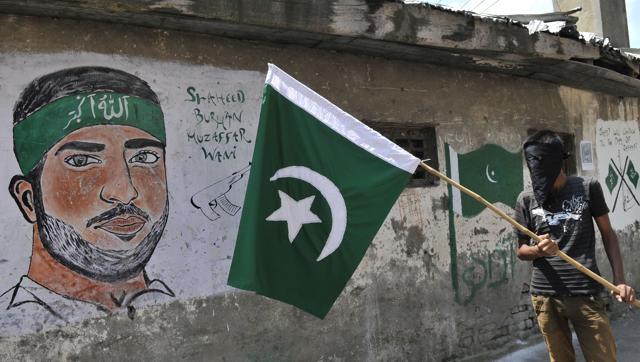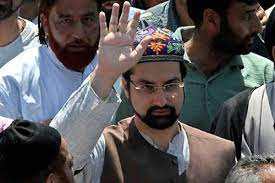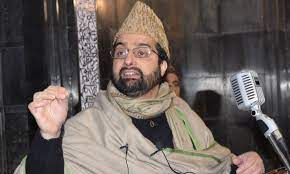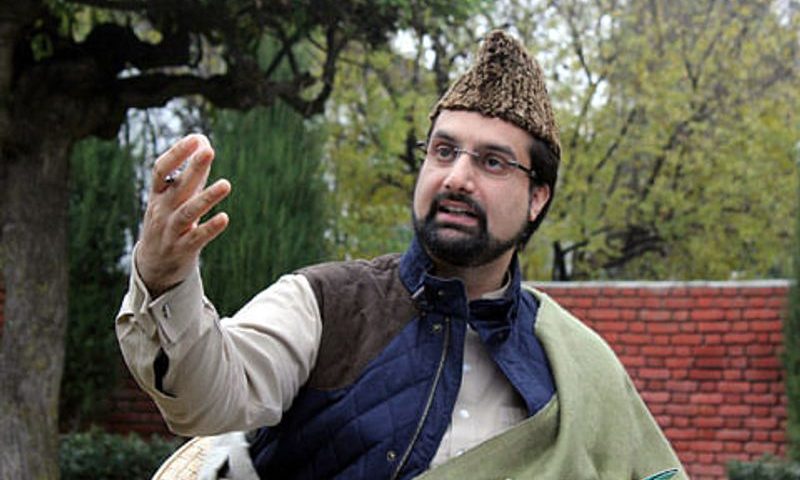
The crown is bereft of sheen, of jewels, of ‘Indian-ness’. Every Kashmiri is locked up at home because of the government’s fear that Pakistani flags might flutter atop buildings, that black flags might mar the celebrations of the nation’s birth.
The Valley is draped in a blanket of security. Thousands of soldiers are the only ones out on the streets, trying to keep tentative peace. Nervous men in uniform stand with guns cocked, in wait, perhaps, of defiant pelters who might dart out of their homes. But movement, too, is restricted. Rolls of concertina wire have been laid out to block squares, alleys and bylanes. The sight of a civilian on the streets is enough to unnerve the security forces, as this reporter did: Who are you? Why are you out? Don’t you know there is curfew?
On Saturday night, some policemen came to our hotel with a similar set of questions: Who are you? Why are you in Srinagar?
A phone call to a senior police officer revealed a journalist had been mistaken for a member of the Dukhtaran-e-Milat, an all-woman group led by Asiya Andrabi, who had managed to hoist a Pakistani flag last year on August 14. The hotel’s proximity to Lal Chowk, Srinagar’s historic square, led the police to believe Andrabi was planning another stealth hoisting of the Pakistani flag. The policemen left, disappointed at not having unearthed a grand conspiracy.

They might yet succeed, at least in the towns, in preventing the enraged youth from riling ‘India’ through a symbolic hoisting of Pakistani flags. But the rest of you, sitting outside the Valley, will not be discomfited because the government, on Saturday night, snapped broadband connections everywhere except in its own areas.
The story might, however, be different in the rural swathes of Kashmir, where it is difficult to find men in uniform. And where stone-pelting youth hold a sway so powerful, they can block entire highways for 10 hours without the police even attempting to intervene.
Local militants, who now outnumber Pakistani terrorists in the Valley, are on an upswing after Wani’s death. Armed members of the Lashkar-e-Taiba and Hizbul Mujahideen have a measure of ‘freedom’ in rural Kashmir where security operations are limited. Lt Gen Satish Dua, head of the 15 Corps, told HT they don’t want ‘’collateral damage’’ and that the “marrying up of terrorists with agitators is a big challenge”.

Here, terrorists have a free run but civilians are being curbed. Phones are off, newspapers have not been distributed and online services remain suspended.
There are also some in Kashmir who are declaring their ‘independence’ by distancing themselves from mainstream political parties. Several block-level members of the ruling Peoples Democratic Party put out letters of resignation, seeking “forgiveness” for their association with chief minister Mehbooba Mufti and her “pro-India party”.
India and its perceived apathy is riling Kashmiris as much as India is being riled by Pakistan.
If you are reading this postcard from Kashmir, it’s not because we have defied the internet curfew. It’s only because, by sheer luck, this hotel is close to a government block that needs some ‘azadi’ for itself.






